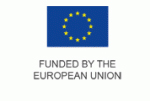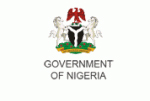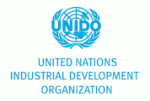European Union applauds NEPC Zero Oil Plan
The leadership of the European Union, led by His Excellency Ambassador Ketil Kerlsen, paid a courtesy visit to the Executive Director/CEO of NEPC Mr. Olusegun Awolowo.
Ambassador Ketil acknowledged the strong partnership between NEPC and EU Commission. He said the Economic Partnership Agreement (EPA) presented mutually beneficial opportunities for Nigeria and EU. The Ambassador solicited the support of the NEPC as a strategic partner to create a wider understanding on the benefits of the EPA and the Continental Free Trade Agreement (CFTA). The CFTA seeks to create a single continental market for goods and services and is key for increased trade activities among African countries and the EU.
Mr. Awolowo informed the EU delegation that the Council is better positioned to drive the diversification agenda of the present administration using the Zero Oil Plan (ZOP). He disclosed that a National Committee on Export Promotion has been set up by the highest economic advisory body in the country, the National Economic Council which is headed by the Vice President.
Showing the importance, the ED/CEO disclosed that the ZOP has been mainstreamed into the Federal Government’s Economic Recovery and Growth Plan (ERGP). This is part of the strategic initiative to boost the supply of foreign exchange from non-oil sectors by driving growth in five key areas.
These are:
- Concentration on generating $30 billion from 11 strategic products.
- Review of Trade Agreement to prioritize Nigerian exports to 22 newly targeted export destinations.
- Strengthening of Export Development Fund (EDF) scheme to enhance competitiveness of locally produced goods.
- Others are, domestic sourcing of products through launch of First National Export Aggregator.
- Exploring the comparative and competitive advantages of states through the One State One Product initiative.
He disclosed that the Council in partnership United Nations Industrial Development Organization (UNIDO) and other relevant government agencies, are on the verge of testing the outcomes of the National Quality Infrastructure Project (NQIP). This testing will be a trial export of Nigerian beans, after the extensive work carried out by UNIDO and the Federal Government Inter-Ministerial Committee on Zero Rejects. It is in response to the EU’s ban on importation of Nigerian beans.
The NQIP is aimed at improving quality, safety, integrity and marketability of Nigerian goods and services as well as removing technical barriers to trade.



